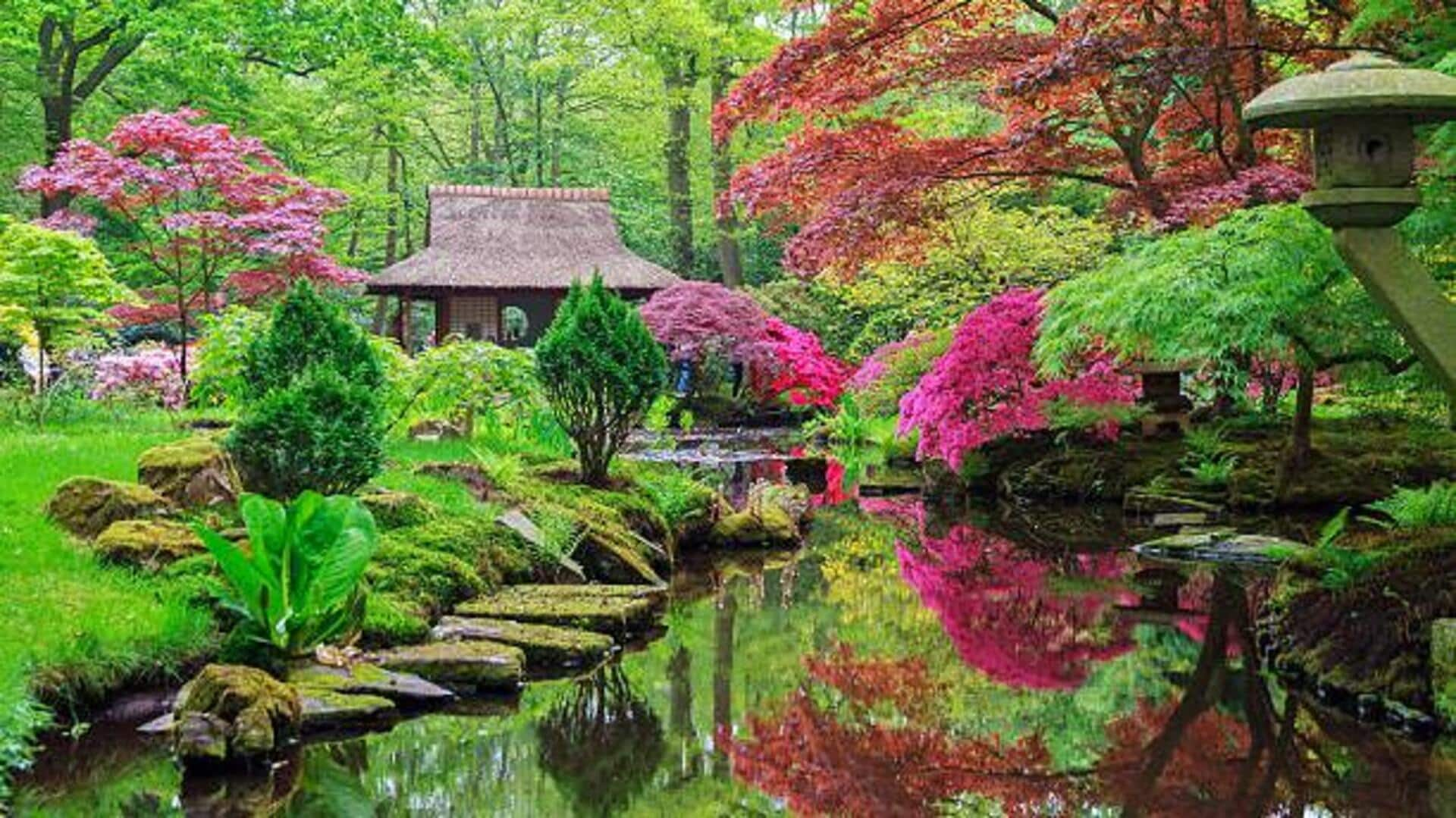
For nature lovers: These Japanese gardens are a must-visit
What's the story
Renowned for their serene beauty and meticulous design, Japanese gardens offer visitors a peaceful escape from the hustle and bustle of daily life. Not just aesthetically pleasing, these gardens embody principles of harmony, balance, and simplicity. Be it a nature lover or someone simply seeking tranquility, exploring these iconic gardens can offer you an unparalleled travel experience, one that connects you with nature.
#1
Kyoto's Ryoan-ji Zen garden
Ryoan-ji Zen Garden in Kyoto is known for its minimalist rock garden. This UNESCO World Heritage site has 15 stones placed on white gravel, inviting contemplation and meditation. The design of the garden encourages visitors to find peace through simplicity and reflection. It is said that only 14 stones can be seen at once from any angle, symbolizing the idea of imperfection in perfection.
#2
Kenroku-en: The six attributes garden
Located in Kanazawa, Kenroku-en is one of Japan's Three Great Gardens. It represents six attributes: spaciousness, seclusion, artificiality, antiquity, abundant water sources, and broad views. Visitors can experience seasonal changes with cherry blossoms in spring and the vibrant foliage in autumn. The garden also has ponds, streams, tea houses, and bridges, making its landscape even more picturesque.
#3
Adachi Museum of Art Gardens
The Adachi Museum of Art Gardens in Shimane Prefecture are where art meets nature. Famous for their immaculate condition and blend with the landscape, these gardens have been ranked Japan's best by various publications for over 20 consecutive years. The museum itself boasts a stunning collection of modern Japanese art which is a perfect complement to the beauty outside.
#4
Korakuen: A stroll through history
Korakuen Garden in Okayama takes you on a historical journey with its Edo period design. This strolling garden has ponds with koi fish and paths lined by plum trees which bloom around February or March. It is the perfect place to witness traditional Japanese horticulture and go for a leisurely walk in the midst of serene surroundings, far from the usual tourist crowd.